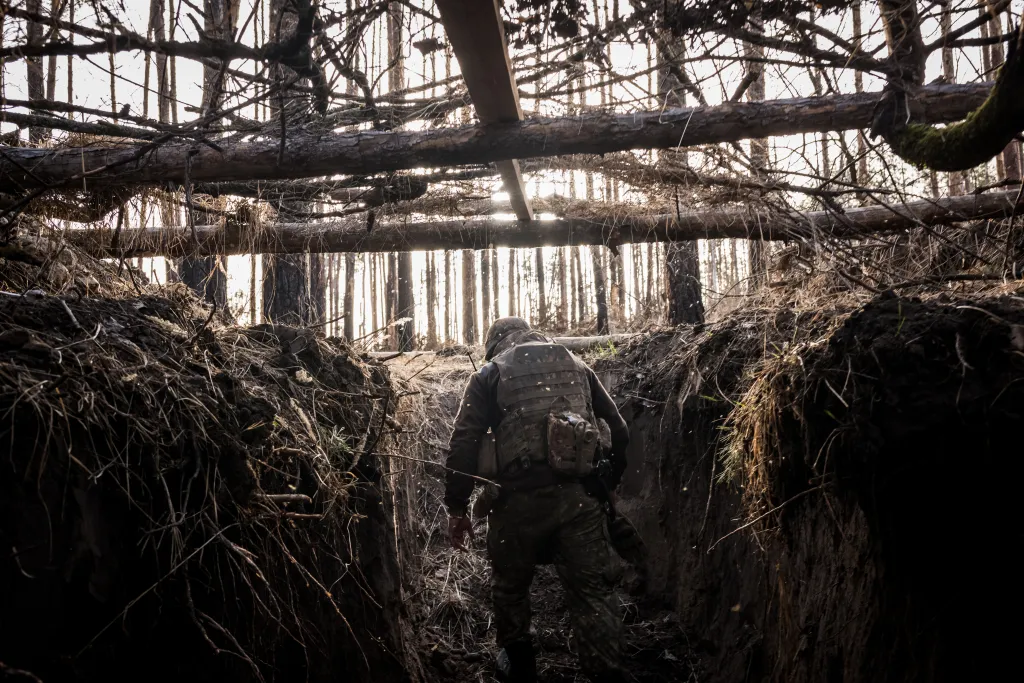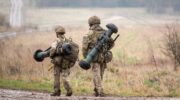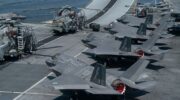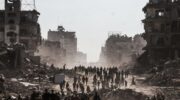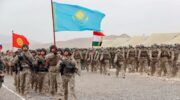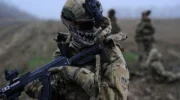A BRITISH soldier who died from a gunshot wound to the roof of the mouth after leg injuries from explosives, an inquest has heard.
Former Royal Marine Commando, Oliver Bovey, 27, was fighting in Donetsk, Ukraine against Russian Forces when he suffered leg injuries from an explosion.

The inquest heard how the tourniquet applied would have been enough to save Oli’s life, but the post-mortem concluded he died from a single gunshot wound “to the roof of the mouth”.
The wound was said to be consistent with that inflicted by a “high-velocity” assault rifle.
The coroner said there was “insufficient” evidence to conclude a verdict of suicide as there were no witnesses or evidence of intent.
Oliver, from Torquay, Devon, had shared concerns about the “evacuation of injured troops” with loved ones back home just before he died.
Coroner Darren Slater told Oxford Coroner’s court: “The issue and nature of the gunshot wound to the head raises consideration maybe it was a self-inflicted gun shot.
“But to reach a conclusion of suicide, we need to determine did they intend to end their life.
“Oli sustained blast injuries to his lower legs. This is not a typical case of suicide. There isn’t evidence to sufficiently indicate Oli was responsible for the gunshot wound to his head.”
Mr Salter recognised the “uncertainty” surrounding the Oli’s death in November last year and yesterday the court heard the results of a post-mortem.
He added that the concerns Oli had raised about war casualties shrouded his death in “uncertainty”.
“There was a fatal gunshot wound to the head that could have been self-inflicted – but we don’t know what happened and it could have been inflicted by someone else as well,” the coroner continued.
The post-mortem conducted by Dr Russell Delaney found “blast injuries” on Oli’s lower legs which were “in keeping with shrapnel – most likely an anti-personnel mine or IED that exploded under his legs.”
Dr Delaney concluded that the whilst the injuries would have caused blood loss they would not have caused immediate death.

He reported that the wounds “would have been amenable” to treatment.
The gunshot wound was not recorded in the initial post-mortem carried out by the Ukrainian authorities, they noted a tourniquet was in place and listed the cause of death as “shrapnel wounds”.
Dr Delaney said the “immediate and principle cause of death” was a “penetrating wound to the head, with entry to the roof of the mouth”.
He said that the wound was in keeping with being caused by a “high velocity assault rifle”.
“Had he survived longer, the injuries to the lower leg could ultimately have proved fatal,” the report added.
Dr Delaney found that the wound could feasibly have been self-inflicted or inflicted by another person but the post-mortem could not provide reason or intent.
The court heard how Oli had been deployed in a populated area where many casualties had been recovered and moved for medical examination at the local bureau.
Mr Salter said in a narrative verdict that the proximity of Oli raising his worries to his death was “concerning”.
The coroner continued: “We don’t have any eyewitness accounts if there were any to know exactly what happened initially.

“It does seem to be the case the lower limb injury from the explosion happened first and a tourniquet was applied.
“We have the messages to Oli’s friend with the issue of him raising a question mark about recovering him from the battlefield. We don’t know how concerning that was to Oli but it was shortly before his death.
“There is uncertainty about what happened. It concerns the unreliability of the Ukrainian evidence and an inability to call further evidence.
“We have little detail about how the gunshot wound was inflicted – we can not say anymore than that.
“I can not rule out it may have been Oli who inflicted that wound when he was extremely injured – but equally it could have been inflicted by other person.
“There isn’t evidence to record his death as suicide, it is a little open as we don’t know details about that.
In his formal conclusion Mr Salter added: “Oliver Bovey was serving in the international legion of the Ukrainian army on the 27 November 2024.
“While on a combat mission near the village of Hryhorivka, Bakhmut District, Donetsk Region, he sustained blast injuries to his legs, mostly likely from an anti-personnel mine or improvised explosive device.
“These injuries would not have resulted in immediate death, and it appears a torniquet was applied. There was also a single gunshot wound into the roof of the mouth resulting in rapid death.
“This could have been self inflicted or inflicted by another person.”

